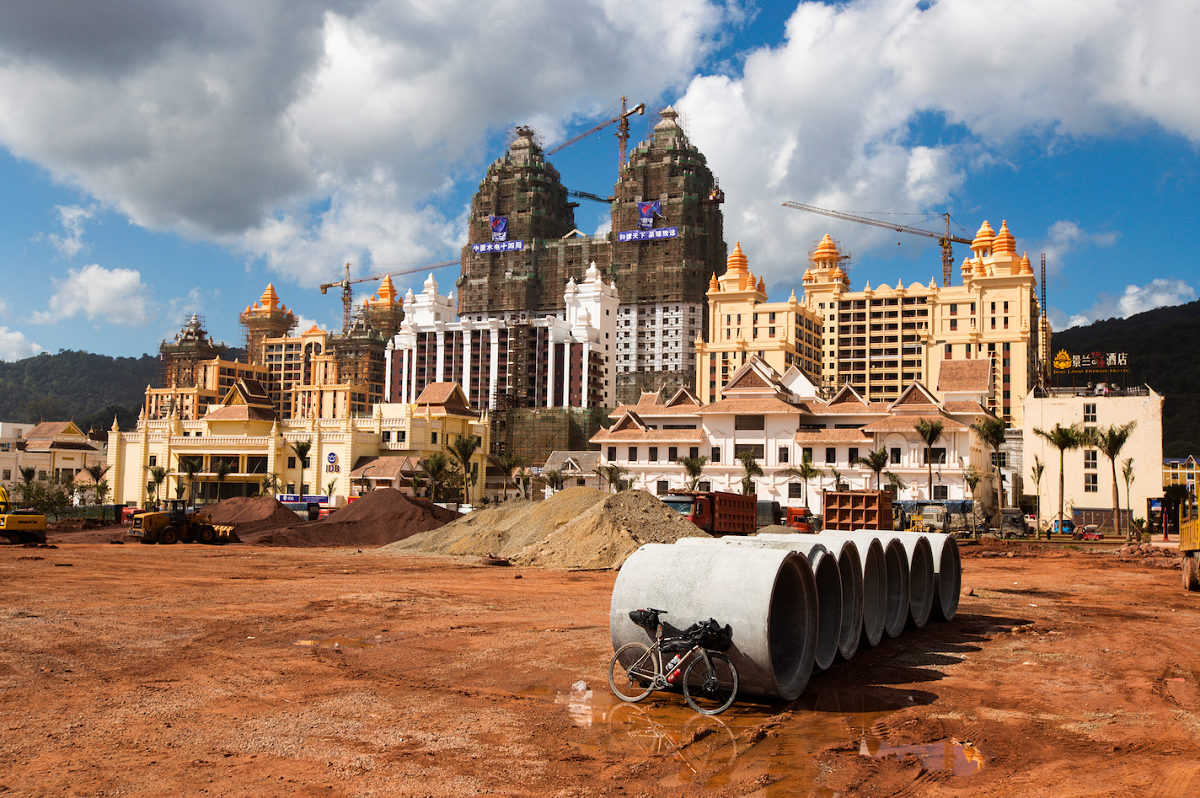[WEBCAST] How Does Laos Deal With Chinese Megaprojects?
VIEW EVENT DETAILSJessica diCarlo of the University of Colorado Boulder Discussing the Belt and Road in Laos With IHE Delft's Susanne Schmeier

Boten Special Economic Zone at the Lao-China border. © Carl Zoch
The Chinese-financed effort to build a national railway through Laos is well under way. The line from Kunming, China to Vientiane, Laos is a core part of the Belt and Road Initiative (BRI) with the aim to connect Chinese markets to Singapore, Thailand, Malaysia and Myanmar. While the benefits to China are obvious, it seems uncertain to what extent Laos can benefit from this megaproject, from the infrastructure itself, but also other projects, e.g. Special Economic Zones.
What are the implications on the ground of these megaprojects? How has Laos as a host country negotiated and implemented the BRI with Chinese counterparts? Why are they agreeing to potentially bad deals? And what does this tell us about local institutions and Lao-Chinese relations? Are there any major risks, or social and environmental concerns? Are other host countries in similar situations?
Join us for the webcast with Jessica diCarlo, who has studied the Lao-China railway to showcase how infrastructures relate to on-the-ground political and social relations in host countries. She has lived and worked in Laos and China, visiting the BRI sites and conducting interviews with Chinese and Lao officials, businesses, locals and other actors involved.
About Asia Society Webcasts
Our webcasts offer access to latest developments and topics in the area of policy, art and culture presented by specialists and experts from all over the world.
Asia Society members can register for the webcasts to participate on the conference platform zoom. This offers you the possibility to comment and ask questions. Non-members are welcome to watch our webcasts live on Facebook.
All our webcasts are recorded and published along with key takeaways. Webcasts – no matter where you are, you can stay connected!

Jessica diCarlo is a doctoral candidate in the Department of Geography at the University of Colorado Boulder. She completed her masters in Development Studies at the University of California Berkeley and was also a visiting fellow at Boston University’s Global Development Policy Center. Jessica specializes in critical development studies, political ecology, political geography, and the anthropology of infrastructure. Her regional expertise is centered in China, where she has worked in Yunnan, Liaoning, Tibetan regions, as well as Beijing and Shanghai since 2008. Her interest in Chinese borderlands led her to do research in Nepal, India and Laos. Her dissertation draws on ethnographic fieldwork in northern Laos and examines the construction and planning of the Laos-China Railway and related economic zones to ground ‘global China’ in ways that pay closer attention to complex host contexts. During her fieldwork, she was a research fellow at the University of Bern’s Centre for Development and Environment in Vientiane, Laos.

Dr. Susanne Schmeier, LLM, is a senior lecturer in water law and diplomacy at IHE Delft in Delft, The Netherlands. She specializes in water and environmental law and management, with a particular focus on shared water resources. Prior to joining IHE Delft, she worked for the German Gesellschaft für internationale Zusammenarbeit (GIZ) as well as various international and regional organizations, including the World Bank, supporting sustainable water resources management around the world. This also brought her to the Mekong region, including to Laos, where she lived for several years and worked for the Mekong River Commission (MRC), and Vietnam, where she was a trainee at the German Embassy. Susanne holds a PhD in water governance from the Free University Berlin (in partnership with Oregon State University), an LLM in international law from the University of London and a diploma/MA in international relations and international law from the University of Leipzig and Sciences Po Paris.
